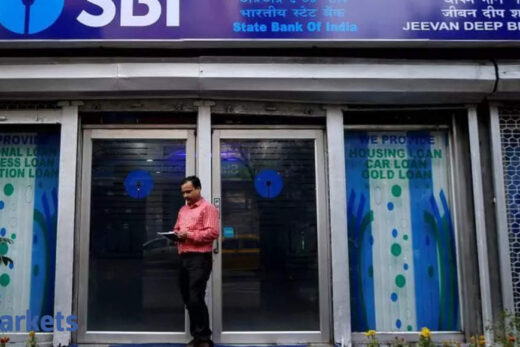The Sensex plunged 937.66 points to close at 47,409.93 while the Nifty slipped 271.4 points to end at 13,967.50.
With Wednesday’s fall, the Nifty has dropped 4.6% from its record high of 14,753 on Thursday. The Sensex has dropped 4.8% from its all-time high of 50,184 set on the same day.
“Markets have run up a lot from the March low and hence some profit taking is likely,” said Nilesh Shah, managing director, Kotak Mutual Fund.
Wednesday’s fall has also caused benchmarks to turn negative for the year. Foreign money managers do not see a sharp fall from current levels.
“The current pull-back is a correction rather than the beginning of a major down-trend,” said Mark Matthews, head of Asia research at Bank Julius Baer in Singapore.
Foreign portfolio investors (FPIs) sold shares worth a net Rs 1,688 crore on Wednesday, extending their selling spree to the third day for a total Rs 3,292 crore.

Fear Gauge Surges 5%
Though market participants have been warning that the market was overheated after the recent rally, FPI flows kept driving up stocks as domestic investors sold continuously. So far in January, foreigners have pumped about Rs 20,000 crore into stocks. The Volatility Index or VIX surged 5% to 24.4, suggesting traders see more risks to the market in the near term.
Sentiment across other Asian markets was mixed. The dollar, which has reversed declines, edged higher against a basket of currencies as foreign exchange markets awaited remarks from Federal Reserve chair Jerome Powell after the two-day rate-setting meeting ending Wednesday.
Mathews said tension over the farm bills has also caught the attention of global investors.
“The violence in Delhi has made it to the front of news apps around the world and surprised foreign investors who thought the farmers’ protests were dying down,” he said. “The government can’t really repeal the three farm bills — it would set them back by five years if they do that.”
Market participants are eying the February 1 budget, which is expected to include measures to revive growth.
“In my experience, the market usually goes down after the budget. It will be a pro-growth and market-friendly budget, but the market has already priced this in,” said Mathews. “So, I don’t see the market going up much immediately after February 1.”



